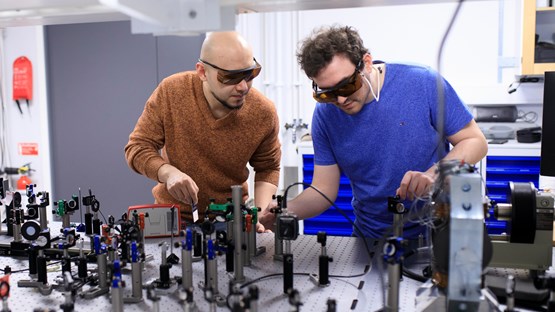Physics is the science of how nature works at the most fundamental level, from the smallest blocks of matter and the fundamental forces, to the largest structures in the universe. Physics uses mathematics to describe experimental results, which in turn confirm or refute the theories presented. Theories can be used to make new predictions, e.g., the properties of newly developed materials. Physics is often the basis for new inventions, such as the refrigerator, the transistor, and the tv.

Václava Hazuková, KBC-Kempe postdoc, researches carbon storage in Arctic lakes.

His research lays the foundation for the light-operated and energy-efficient computers of the future.

Dmitry Malyshev is exploring new ways to detect and remove bacteria in the dairy industry.

Researchers have developed a laser made entirely from biomaterials.

New method provides an early indication of danger in conflict zones.

For the first time, the Umeå researchers have demonstrated the full capabilities of their large-scale laser.

Researchers have found a way to improve catalysts that make emission-free hydrogen.

The discovery will help to understand why species are spread the way they are across the planet.

Solar thermal collectors are taking on fossil energy sources – thanks to a new type of coating.

Ben John's research could lead to faster and more energy-efficient computing.

Qi Zhang's research shows how the atmosphere on Mars has evolved over time and may look like in the future.

Resistant spores can cause food poisoning and infections via, for example, dairy products.

Honored for serving with distinction in the advancement of optics and photonics

UCMR Day is an opportunity to increase international visibility by inviting talented keynote speakers.